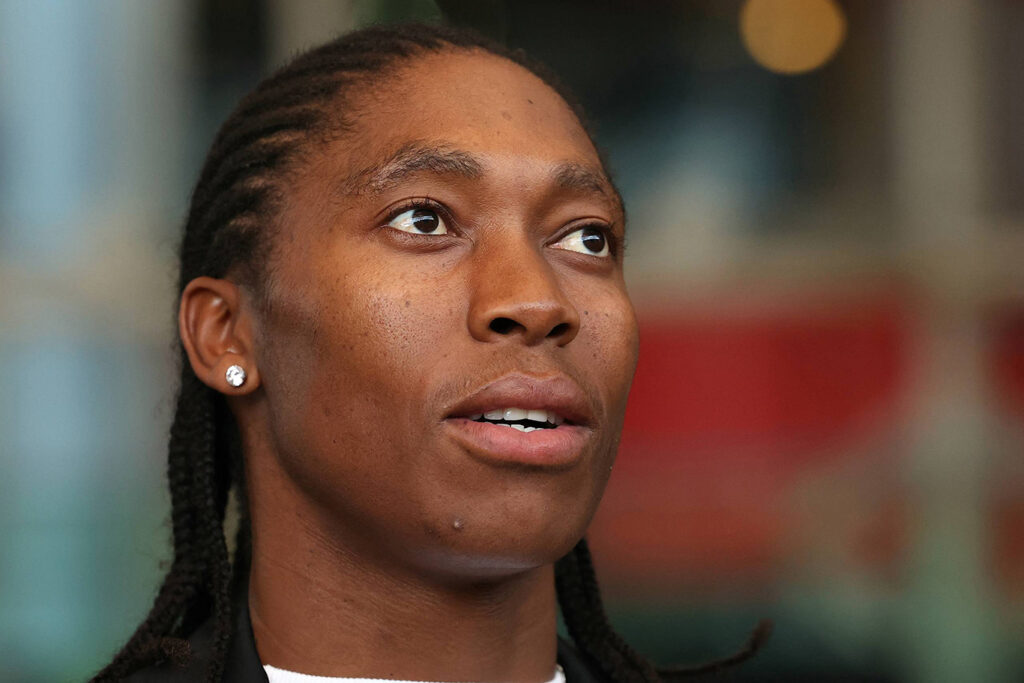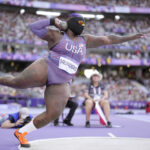Caster Semenya has ended seven-year a battle over sex eligibility rules in women’s track and field that have barred her from competition since 2019.
Semenya’s lawyers revealed on Thursday that they will not pursue any more appeals in her fight against rules implemented by World Athletics that placed mandated on testosterone limits for athletes in the female category.
In an email to the The Associated Press, lawyer Patrick Bracher said that the legal team would not continue the appeal process despite the European Court of Human Rights ruling in July that Semenya did not get a fair hearing in Switzerland’s Supreme Court in 2023.
“Caster’s legal challenge reached the highest possible court with a highly successful outcome and will not be taken further in the circumstances,” Bracher said.
Semenya, 34 has been locked in a long saga of hearings and court proceedings over rule changes by World Athletics that have effectively ended her career that reached its height with a pair of Olympic gold medals for South Africa in the 800m. She burst into the sport in 2009 after winning gold in the women’s 800m at the World Championships as a teenager in 1:55.45 in the final — a world lead that year.
But shortly after, she would later face scrutiny about her performances and sex and was asked to take a gender verification test to prove she was female. Results of the test were not made public, but rumors emerged that Semenya had intersex trait. She was cleared to compete the following year.
Since 2009, Semenya has been a routine subject of debates over gender eligibility in track and field — and sports in general — as various governing bodies have either adjusted, re-evaluated or not changed their competition rules. Semenya has a differences in sex development (DSD) or intersex condition which means that she has a male XY chromosome pattern but the physical traits or a female in addition to naturally higher levels of testosterone.
She continued to competed at a high level but by 2018 World Athletics (then known as the IAAF) announced rule chance that specifically applied to DSD athletes. Athletes with testosterone levels above 5 nanomoles per liter (nmol/L) would be required to use medication lower their testosterone levels in order to compete in certain female events. At the time, the new rules applied eight events, including the 400m, 800m, and 1,500m — which Semenya regularly competed.
What followed since the rule was implemented in 2019 has been a series of litigation that has reached the European Court of Human Rights, Court of Arbitration for Sport and the Swiss Federal Tribunal. Following the rule changes by World Athletics in 2019, she refused take medication to artificially reduce her testosterone levels after saying the medication made her feel sick.
She challenged the rule changes and told The New York Times in 2018 that she was “very upset that I have been pushed into the public spotlight again. I don’t like talking about this new rule. I just want to run naturally, the way I was born. It is not fair that I am told I must change. It is not fair that people question who I am.”
In May 2019, the Court of Arbitration for Sport rejected her challenge despite the ruling stating that the discrimination in the rules were needed to maintain the governing body’s aim to affirm the integrity of the female category. Semenya lobbied to the Federal Supreme Court of Switzerland that month, and in injunction was reached in June 2019 but reversed weeks later. That same court then dismissed Semenya’s appeal in 2020, siding with World Athletics’ rule change.
Semenya then appealed to the European Court of Human Rights in February 2021, with that court ruling in July 2023 that the competition rules were discriminatory and violation of her human rights. Despite the ruling, it was not a reversal of World Athletics’ rules and Semenya was still unable to compete without taking hormone suppressing medication.
In November 2023, the Grand Chamber of the European Court of Human Rights was asked by Switzerland to render a final judgment.
That court ruled in July before a 17-judge tribunal that some of her rights were violated in Switzerland’s Supreme Court hearing and that Semenya’s appeal had not been properly heard.
World Athletics has since tightened it’s regulations — and stance — on DSD athletes competing in the female category, with new testing measures being implemented before last month’s world championships in Tokyo.
With her career sidelined by the rules changes, Semenya turned to coaching, with Thursday’s legal decision putting a conclusion to years of hearings, appeals and rulings.







